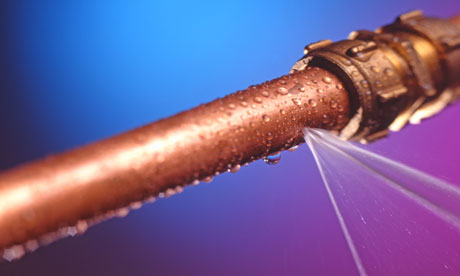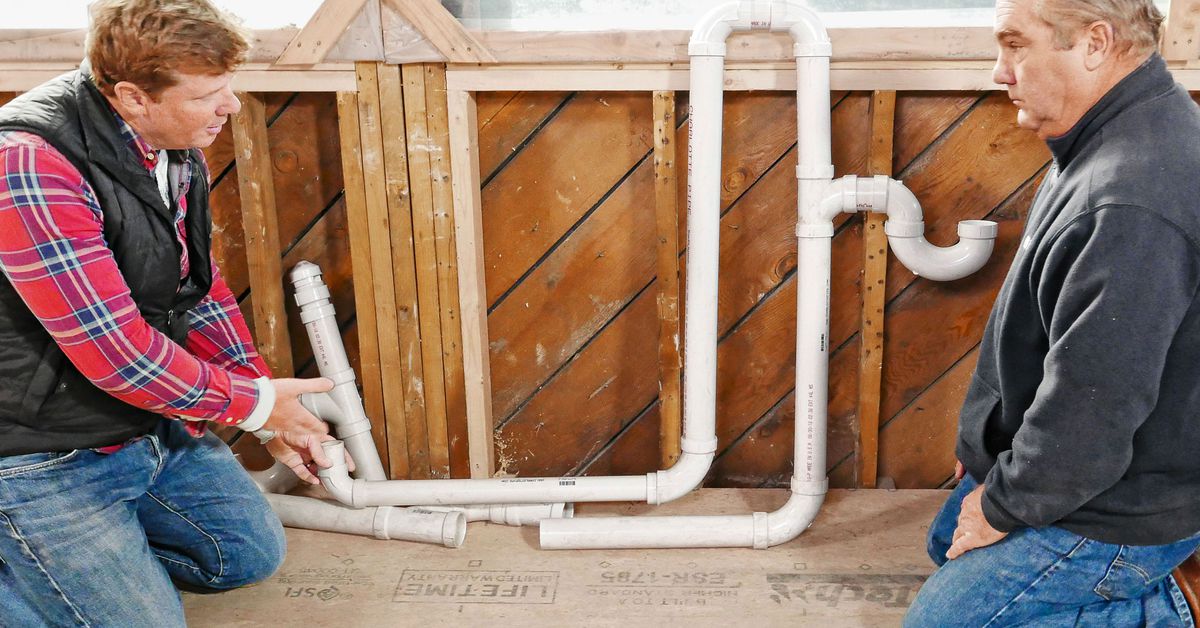Right here below you will find some great help and advice with regards to Why is My Home Making Strange Plumbing Noises.

To detect loud plumbing, it is very important to figure out very first whether the undesirable audios take place on the system's inlet side-in various other words, when water is transformed on-or on the drain side. Noises on the inlet side have differed causes: too much water stress, worn valve and faucet parts, incorrectly linked pumps or various other devices, incorrectly placed pipe fasteners, and also plumbing runs having too many limited bends or various other restrictions. Sounds on the drain side typically come from poor area or, as with some inlet side sound, a format consisting of limited bends.
Hissing
Hissing noise that happens when a faucet is opened somewhat typically signals excessive water stress. Consult your regional water company if you suspect this trouble; it will certainly be able to inform you the water stress in your location and also can set up a pressurereducing shutoff on the incoming water system pipeline if needed.
Other Inlet Side Noises
Squeaking, squealing, scratching, snapping, as well as tapping normally are caused by the development or tightening of pipelines, normally copper ones supplying warm water. The noises occur as the pipes slide versus loose bolts or strike nearby home framework. You can typically pinpoint the place of the issue if the pipelines are revealed; simply adhere to the sound when the pipes are making noise. More than likely you will certainly find a loose pipeline hanger or a location where pipelines lie so near to flooring joists or various other framing items that they clatter against them. Connecting foam pipeline insulation around the pipes at the point of contact must fix the issue. Be sure bands and also hangers are secure as well as give sufficient assistance. Where possible, pipe bolts ought to be affixed to huge architectural aspects such as structure walls as opposed to to mounting; doing so reduces the transmission of resonances from plumbing to surface areas that can intensify and also move them. If attaching bolts to framework is inescapable, wrap pipelines with insulation or various other resistant material where they contact fasteners, and also sandwich the ends of new fasteners between rubber washing machines when mounting them.
Fixing plumbing runs that struggle with flow-restricting limited or many bends is a last resource that should be undertaken only after getting in touch with an experienced plumbing service provider. Sadly, this circumstance is fairly usual in older homes that may not have actually been built with indoor plumbing or that have actually seen several remodels, specifically by beginners.
Babbling or Shrieking
Extreme chattering or screeching that happens when a shutoff or tap is activated, and that generally disappears when the installation is opened fully, signals loose or malfunctioning interior parts. The option is to replace the shutoff or faucet with a new one.
Pumps and also devices such as washing machines as well as dish washers can move motor sound to pipes if they are improperly connected. Connect such things to plumbing with plastic or rubber hoses-never inflexible pipe-to isolate them.
Drainpipe Sound
On the drainpipe side of plumbing, the chief objectives are to remove surfaces that can be struck by dropping or hurrying water and also to protect pipelines to have inescapable sounds.
In brand-new building and construction, bathtubs, shower stalls, commodes, as well as wallmounted sinks and containers need to be set on or against durable underlayments to minimize the transmission of sound via them. Water-saving bathrooms as well as taps are much less noisy than standard models; mount them rather than older types even if codes in your location still permit making use of older components.
Drainpipes that do not run up and down to the cellar or that branch into straight pipe runs sustained at floor joists or various other framing existing especially bothersome noise issues. Such pipes are big enough to radiate considerable resonance; they also bring significant quantities of water, which makes the circumstance worse. In brand-new building, specify cast-iron dirt pipes (the large pipelines that drain toilets) if you can afford them. Their massiveness consists of a lot of the noise made by water going through them. Additionally, prevent directing drains in walls shown to bed rooms and spaces where individuals collect. Walls including drains should be soundproofed as was defined earlier, using dual panels of sound-insulating fiber board as well as wallboard. Pipes themselves can be covered with special fiberglass insulation created the purpose; such pipes have an impervious vinyl skin (sometimes including lead). Outcomes are not always adequate.
Thudding
Thudding noise, commonly accompanied by trembling pipes, when a faucet or appliance shutoff is shut off is a problem called water hammer. The sound as well as vibration are triggered by the reverberating wave of stress in the water, which instantly has no place to go. Often opening up a valve that discharges water swiftly right into an area of piping including a limitation, arm joint, or tee installation can produce the same condition.
Water hammer can normally be treated by setting up installations called air chambers or shock absorbers in the plumbing to which the problem valves or taps are linked. These tools enable the shock wave created by the halted circulation of water to dissipate in the air they have, which (unlike water) is compressible.
Older plumbing systems might have short vertical areas of capped pipe behind wall surfaces on tap competes the same function; these can eventually full of water, lowering or damaging their effectiveness. The remedy is to drain pipes the water supply totally by turning off the major water valve and opening up all faucets. Then open the major supply valve and also close the faucets one at a time, starting with the faucet nearest the valve and also ending with the one farthest away.
3 Most Common Reasons for Noisy Water Pipes
Water hammer
When water is running and is then suddenly turned off, the rushing liquid has no place to go and slams against the shut-off valve. The loud, thudding sound that follows is known as a water hammer. Besides being alarming, water hammer can potentially damage joints and connections in the water pipe itself. There are two primary methods of addressing this issue.
Check your air chamber. An air chamber is essentially a vertical pipe located near your faucet, often in the wall cavity that holds the plumbing connected to your sink or tub. The chamber is filled with air that compresses and absorbs the shock of the fast moving water when it suddenly stops. Unfortunately, over time air chambers tend to fill with water and lose their effectiveness. To replenish the air chambers in your house you can do the following. Turn off the water supply to your house at the main supply (or street level). Open your faucets to drain all of the water from your plumbing system. Turn the water back on. The incoming water will flush the air out of the pipes but not out of the vertical air chamber, where the air supply has been restored. Copper pipes
Copper pipes tend to expand as hot water passes through and transfers some of its heat to them. (Copper is both malleable and ductile.) In tight quarters, copper hot-water lines can expand and then noisily rub against your home's hidden structural features — studs, joists, support brackets, etc. — as it contracts.
One possible solution to this problem is to slightly lower the temperature setting on your hot water heater. In all but the most extreme cases, expanding and contracting copper pipes will not spring a leak. Unless you’re remodeling, there's no reason to remove sheetrock and insert foam padding around your copper pipes.
Water pressure that’s too high
If your water pressure is too high, it can also cause noisy water pipes. Worse, high water pressure can damage water-supplied appliances, such as your washing machine and dishwasher.
Most modern homes are equipped with a pressure regulator that's mounted where the water supply enters the house. If your home lacks a regulator, consider having one professionally installed. Finally, remember that most plumbers recommend that water is delivered throughout your home at no lower than 40 and no greater than 80 psi (pounds per square inch).
Whatever the state of your plumbing, one thing is certain — you’re eventually going to encounter repair and replacement issues around your home that require professional help. That’s where American Home Shield can come to your aid.
https://www.ahs.com/home-matters/repair-maintenance/causes-of-noisy-water-pipes/

I was made aware of that editorial about Why Do My Plumbing Pipes Make A Knocking Noise through an acquaintance on our other web blog. If you enjoyed our page please don't forget to share it. Thanks for taking the time to read it.
Tap leaking? Call us.